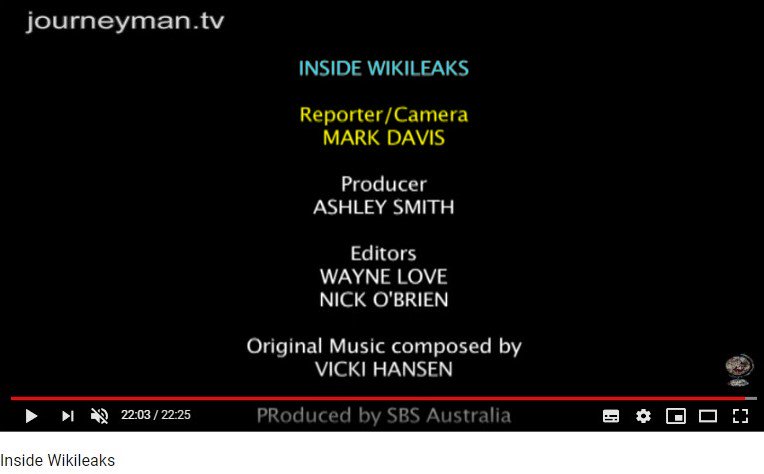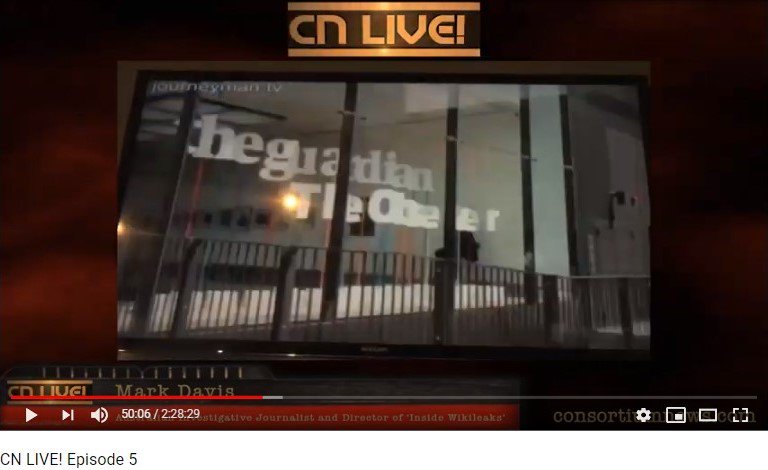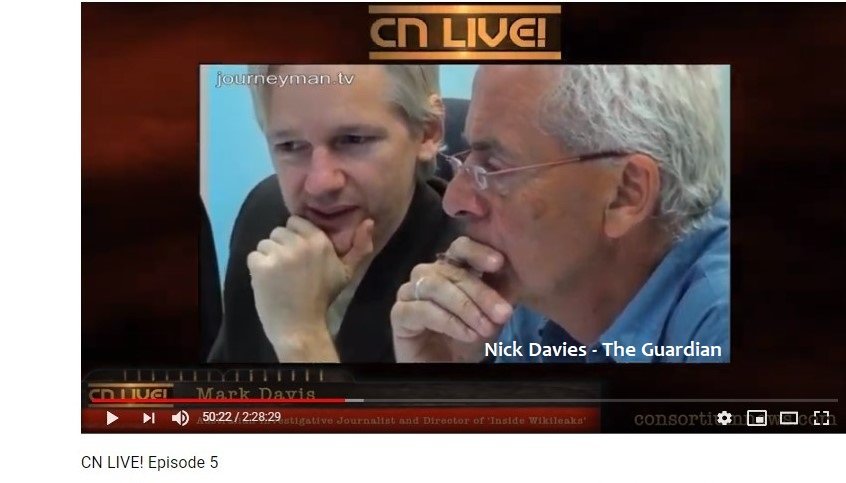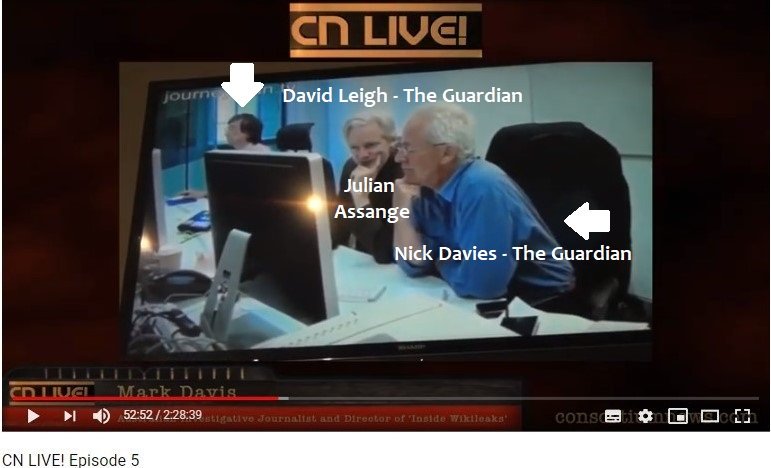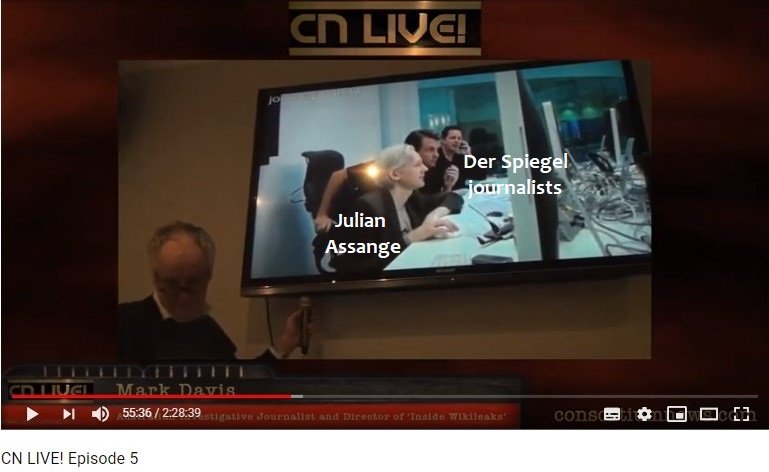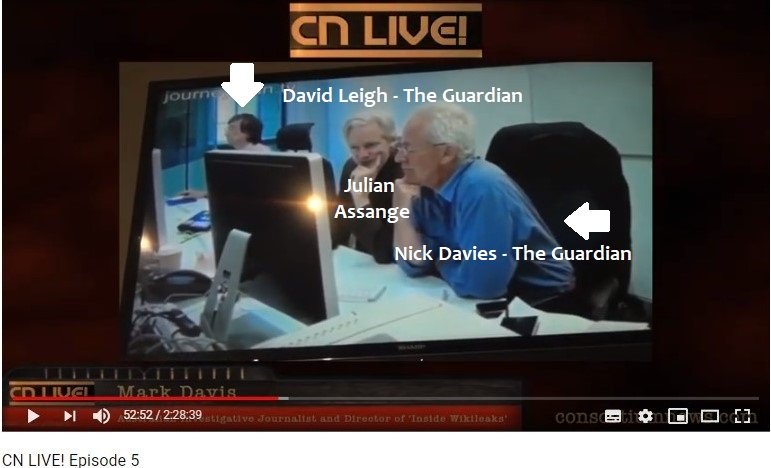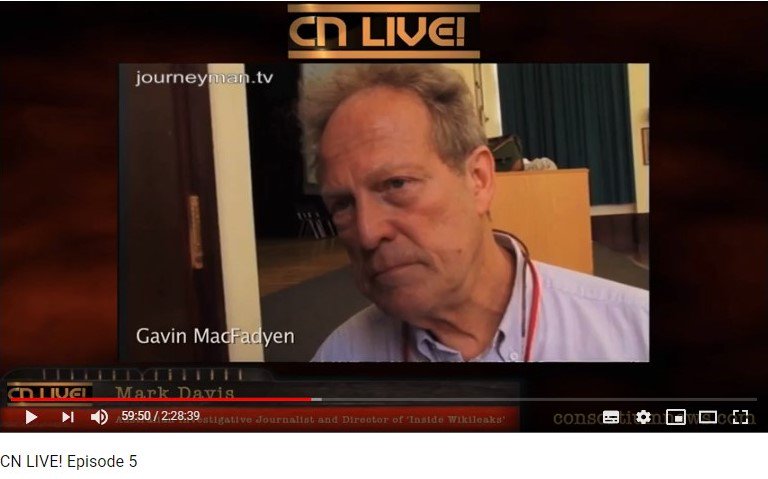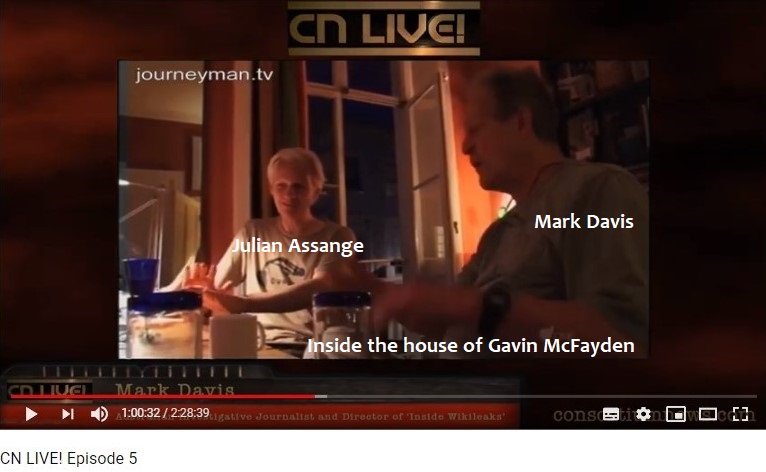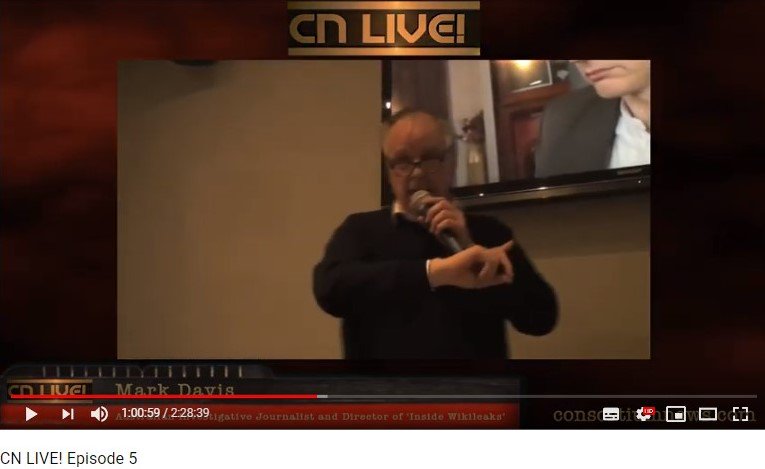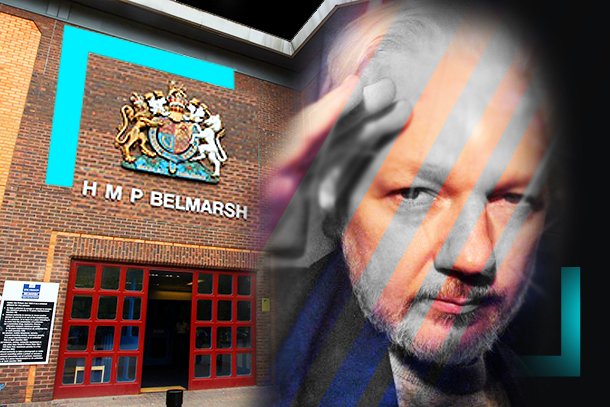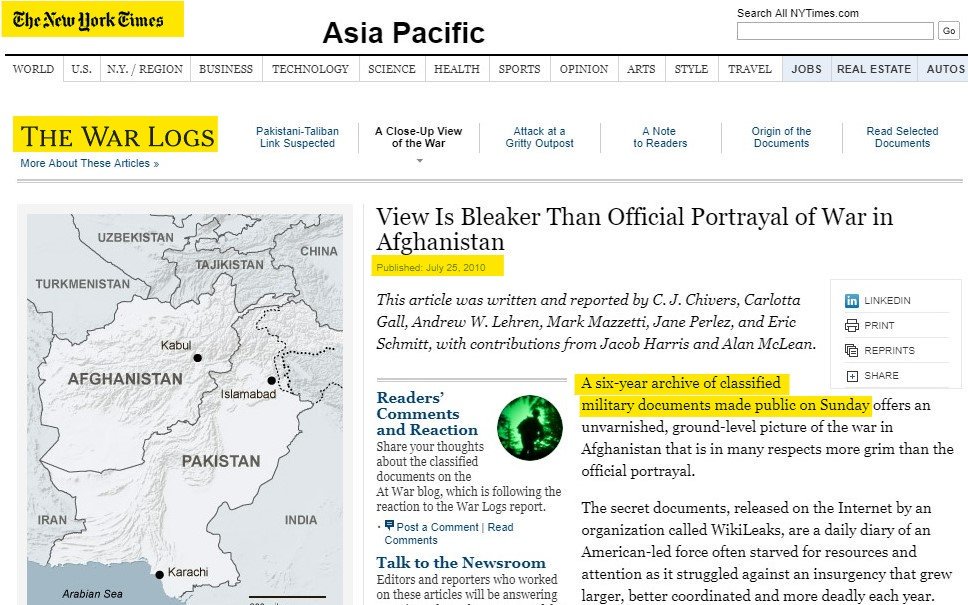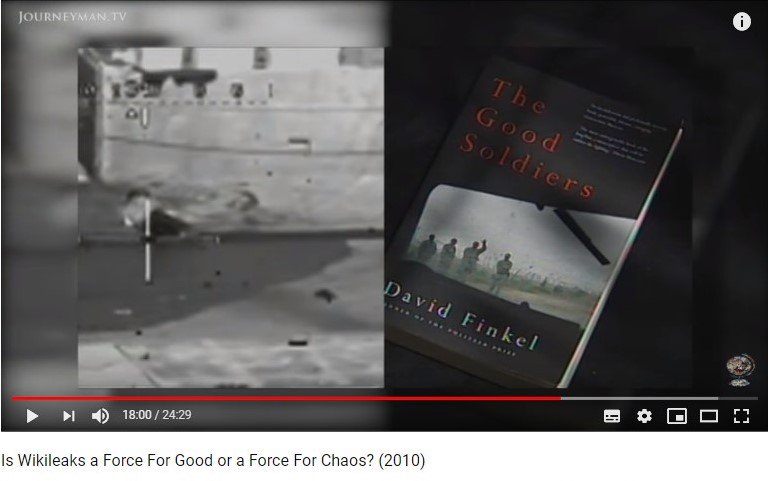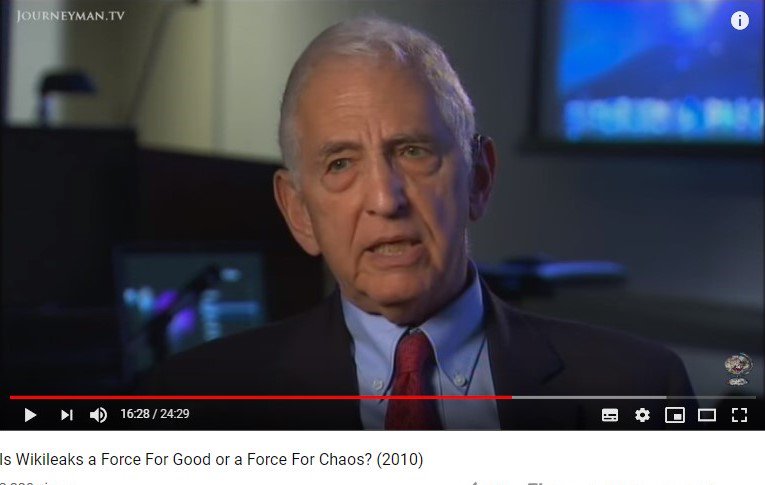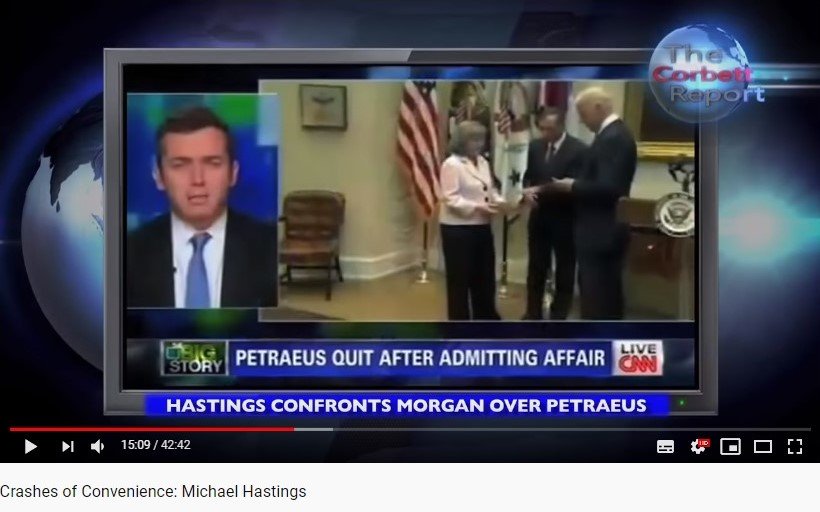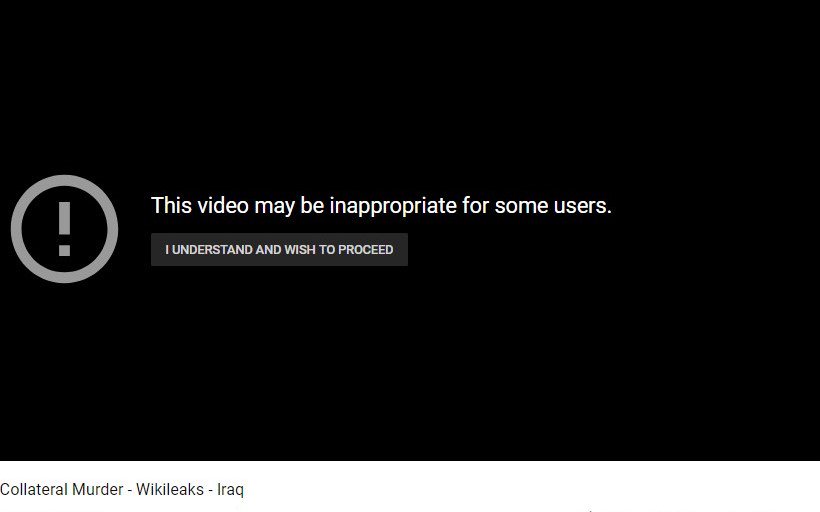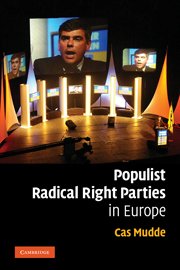What REALLY happened in 2010 when @Wikileaks, the @nytimes, the @guardian et al got together to publish the #WarCrimes of the US and its allies?
Listen to Mark Davis (sbs.com.au/news/dateline/…) share his first-hand experience:
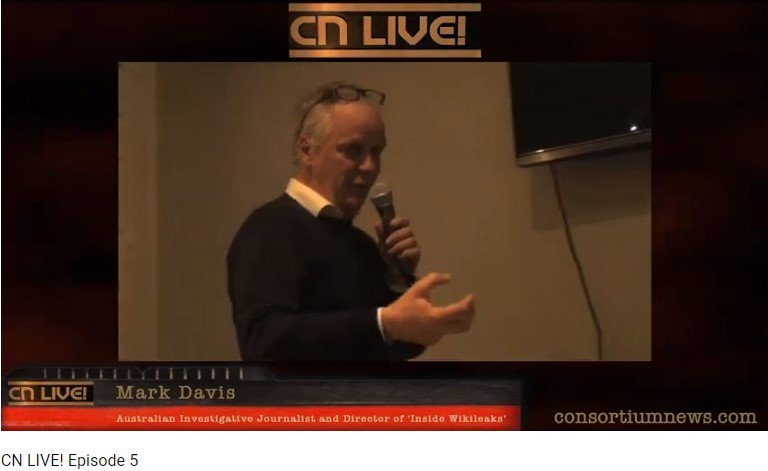
And every moment that those journalists have since narrated in their books, articles, Four Corners appearances, about the 'enormous integrity' that they had, & the 'lack of integrity' that Julian had, I can say is A COMPLETE LIE."
That's what I say is a lie. I was there. If there was any cavalier attitude ... it was the Guardian journalists."
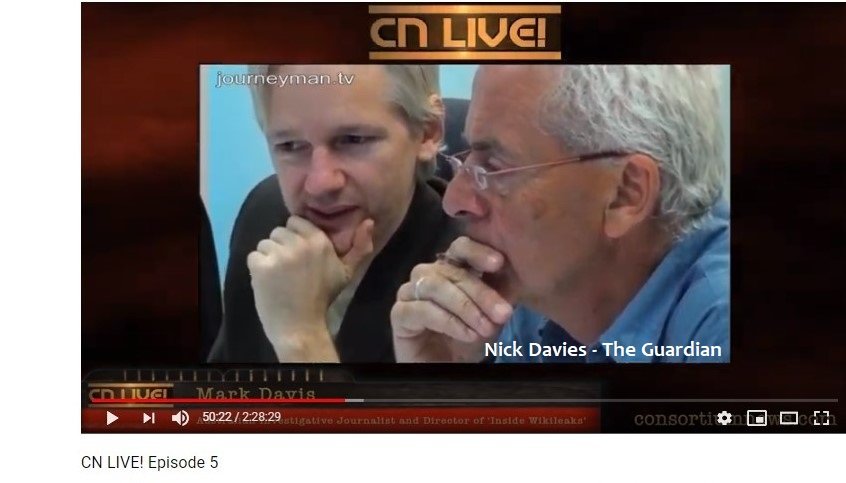
Now that is the ONLY event that I WASN'T at. I remember the dinner and I didn't go to the dinner."
Now that is such a stark contrast to what has been repeated, that I ... want to dissect that a bit."
[WikiLeaks: Inside Julian Assange's War on Secrecy (Feb 2011)]
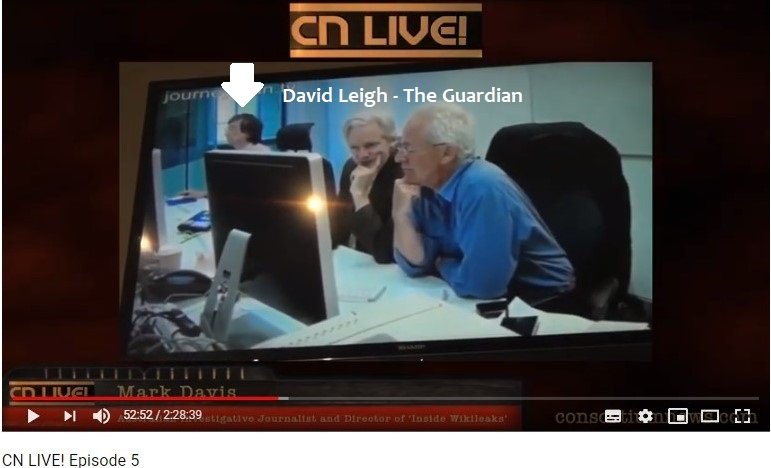
There was no distance between them and Julian at this point, I can promise you."
In his book he put the password that opened the original files ... that Julian had physically redacted. This clown put the password in ..."
[See wikileaks.org/Guardian-journ…]
Quite literally, they should be in jail. They created this, they put it up, they took it out to the world."
That was the Guardian. All, entirely, the @guardian."
So it's about a week of technical work. I mean, about $100,000 probably to do the type of work they did.
And the @nytimes were coming in in the week I was there - were coming in regularly on the telephones."
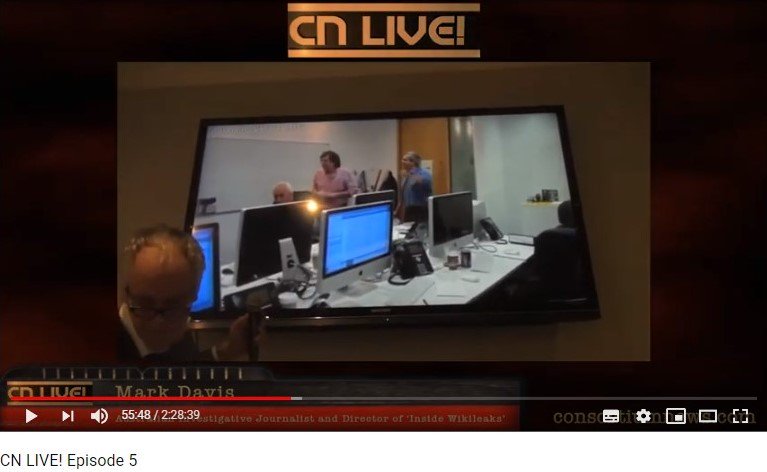
I never witnessed a conversation where anyone took that seriously. Not one."
And then someone said "Well he's going to be named on the website." "
And the words I remember very precisely - from David Leigh was he gazed across the room at Davies and said: "But we're not publishing it [the website]." "
They're going to create this, they're going to make it searchable, they're going to give it a graphic 'look' and they're going to release it."
It's shameful. SHAMEFUL! Embarrassingly shameful."
Remember the Afghan War Logs was really the public announcement of #JulianAssange and @wikileaks."
[Announced 25 July 2010]
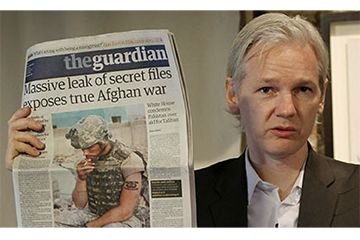
Julian Assange: So anyway, the Times (@nytimes) has come back & said they don't want to go first."
Mark Davis: "Why?"
Julian Assange: "They want us to scoop them!"
Clearly discussed amongst themselves and not discussed with Julian.
You can see his shock in:
'What are you talking about? We're doing this together. This is a collective effort. What are you talking about?' ... "
They didn't care, because there was no reflection upon them. They didn't care - they couldn't give a stuff, right? As long as there was no blow back on them, they were relaxed about it."
Now that called their bluff - not that they were bluffing. But that absolutely through them into a panic. It meant they wouldn't get their publication date."
He said 'Well I'll do it, but we need time.' "
All these people who now write books about how concerned they were, they all went home on Friday afternoon - back to Essex, back to Surrey, whatever ..."
And he did. All night.
When I say all night, I mean from 5pm until 9am the next day. We were sharing an apartment at the time."
Then it came to Sunday night... "
All the press editions are being printed and ready to be released."
For those who wish to read up on the publishing of the Afghan War Logs, this article (by @ElizabethleaVos of @Consortiumnews) makes for helpful reading:
consortiumnews.com/2019/05/09/the…
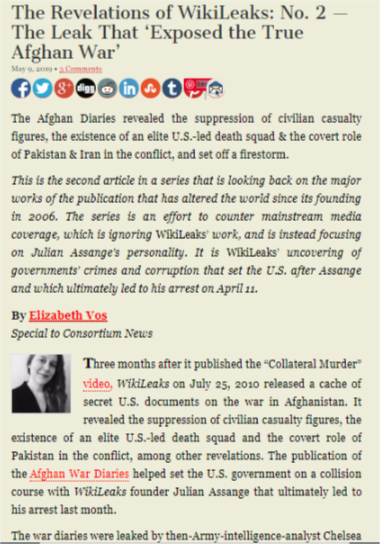
"Now what really happened? They'd built this artifice that Julian was the man to walk the plank for them. and they'll report about a man falling off a plank. That was the premise."
Wikileaks were meant to release on Sunday night [the date given on the Wikileaks webpage at wikileaks.org/+-War-Military…] and the Monday papers would report this event.
But he couldn't get it live."
And the panicked calls from the @nytimes started coming. Like HYSTERICAL calls. I could hear them Everyone could hear them."
Some actual words were "made public" and "The secret documents, released on the Internet by an organization called WikiLeaks ..."
archive.nytimes.com/www.nytimes.co…
But they (@nytimes) were essentially PRINTING A LIE. Wikileaks DIDN'T publish that night. And in fact didn't publish the next day.
I think it was about 2 days. I don't know if that was ever known but I think it was about 2 days before it went up."
And they set Julian up from the start."
I think it's important, that distinction's important when you see this recurring slur, this slander against Julian.
It started in 2010, this 'He's cavalier with people's lives,' and 'he has no ethics.' "
I'm grateful to have done that."
Thanks to @CathyVoganSPK for videoing Mark's presentation, & to @Consortiumnews for screening it on their weekly news show CN Live.
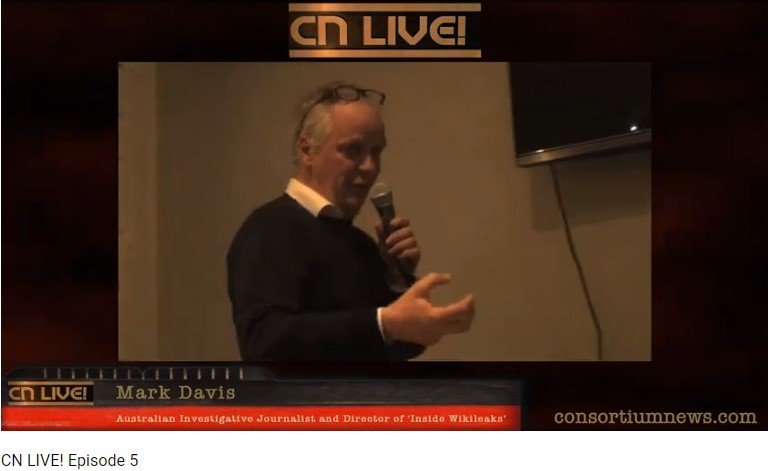
While the emphasis is different, nothing said contradicts claims made by Davis above.
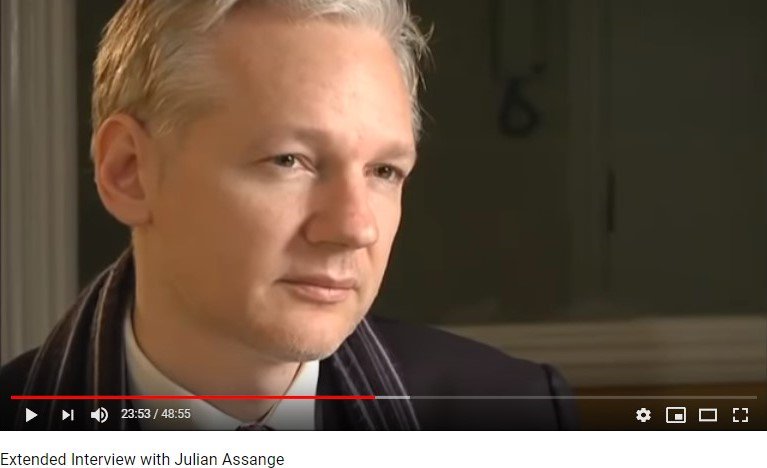
archives.cjr.org/campaign_desk/…
Unfortunately, most of his comments were (ironically) redacted, but a transcript remains. See from 15.59.16.
wlstorage.net/file/cms/Folde…
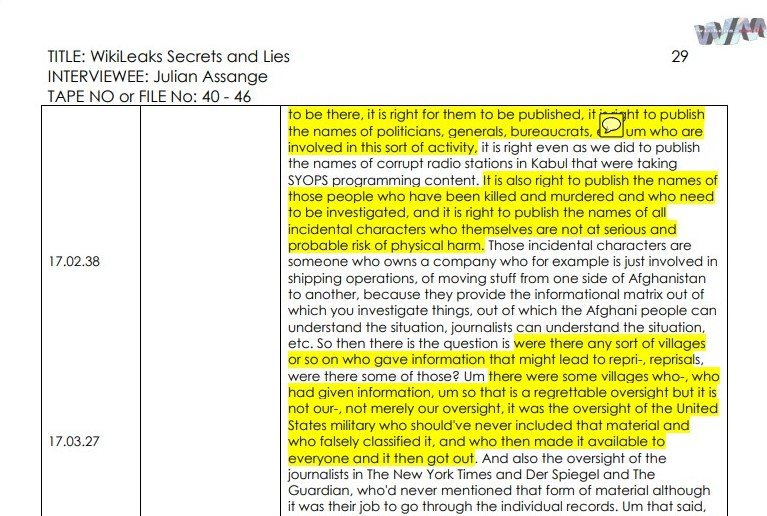
The first (30 Nov 2011) is here:
wikileaks.org/Guardian-s-Wik…
A statement was made afterwards (11 Sep 2012), including an overview of files released as part of OFCOM complaint. The statement from John Goetz is appended to that statement, as are many relevant files.
wikileaks.org/Inside-the-sec…
One surprising detail was that David Leigh is the brother-in-law of Guardian editor (at that time) Alan Rusbridger.
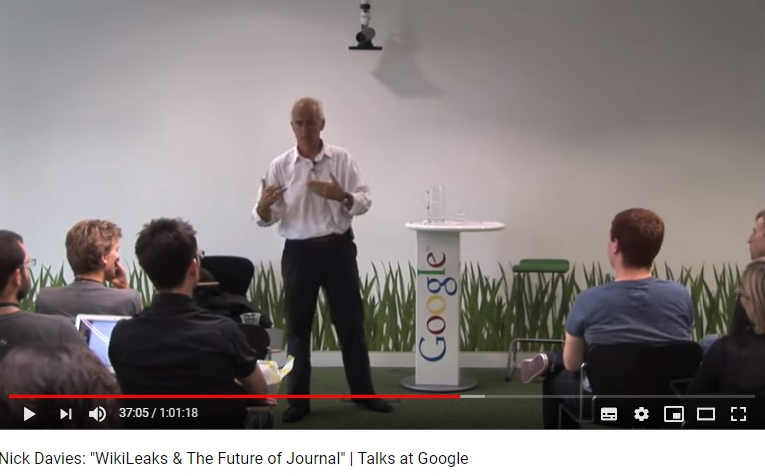
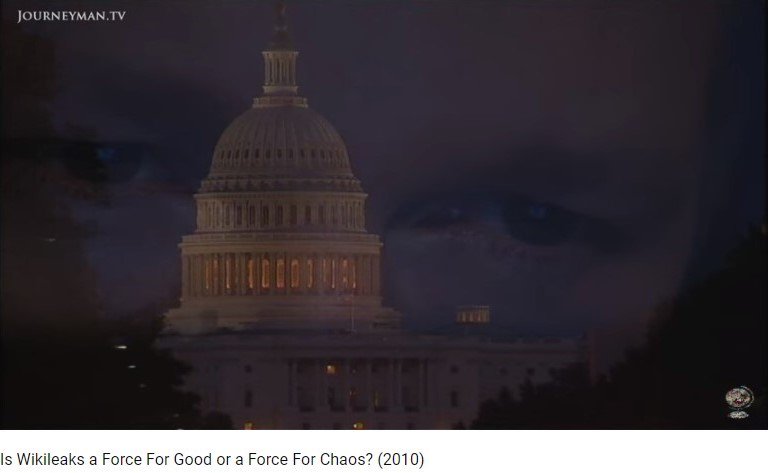
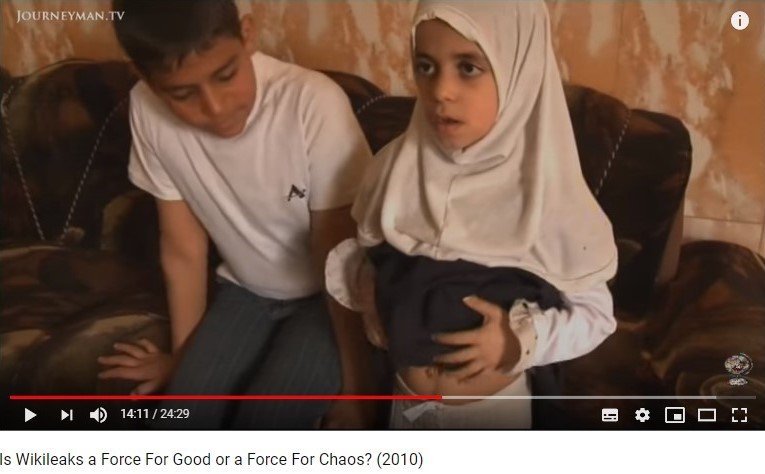
spiegel.de/international/…
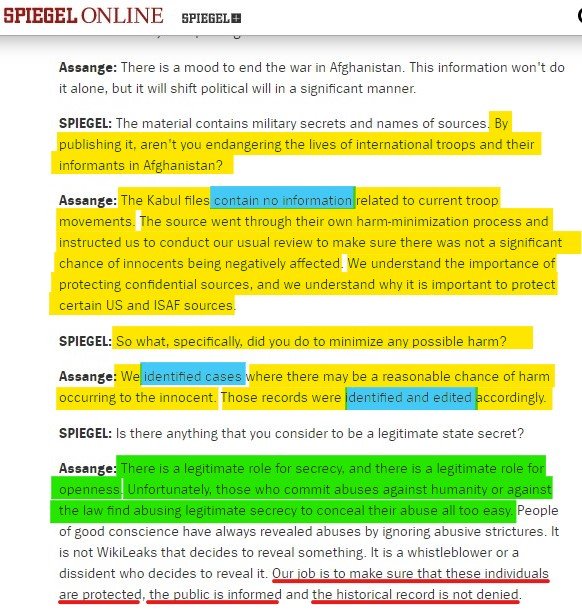
"The Pentagon rebuffed us. Their claims were that they were not interested in any conversation about harm minimisation."
